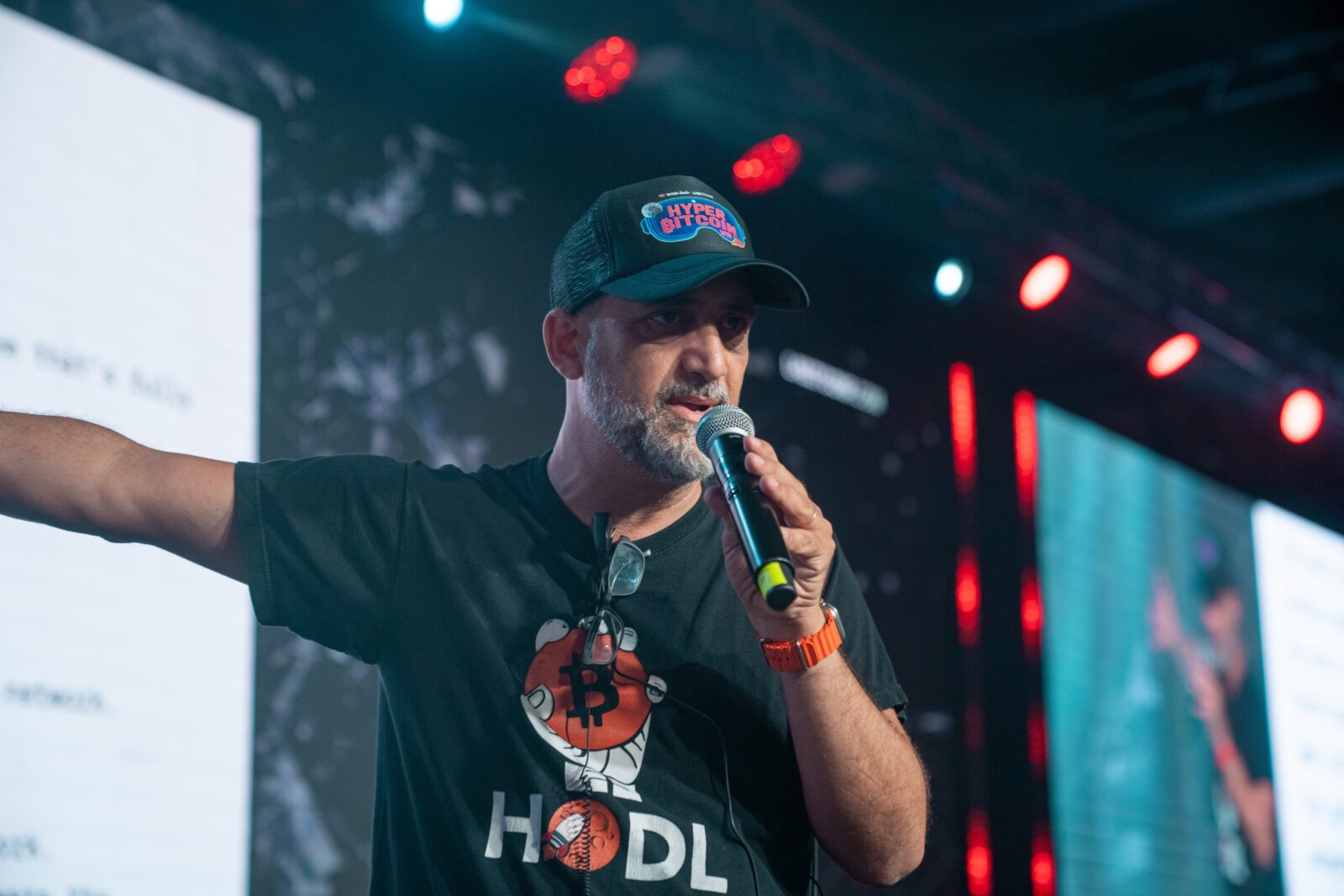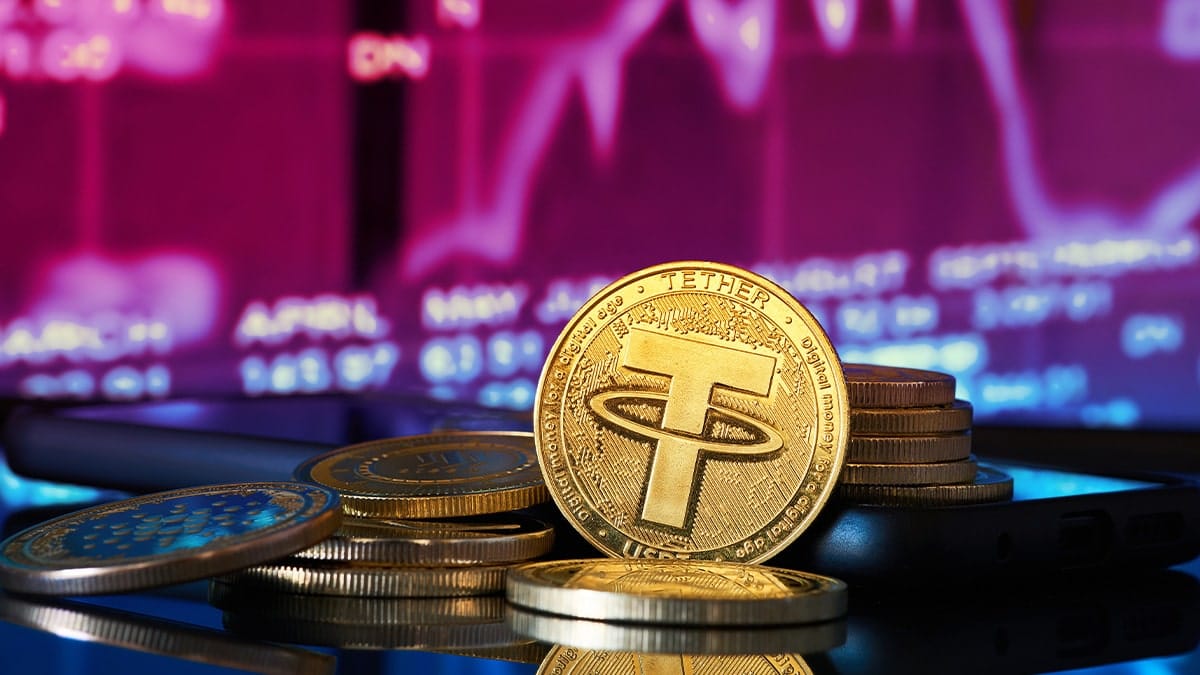For Andragnes, the geopolitical relevance of Bitcoin is going to have something of an explosion.
The NGO Bitcoin Argentina prepares a proposal to change the PSAV registry.
CriptoNoticias spoke in an exclusive interview with the creator of Labitconf, Rodolfo Andragnes, during the 2024 edition of this event called “Restart the System.”
Labitconf is a Latin American bitcoin conference that has been held year after year since 2013, offering talks by leaders of the ecosystem. This November 1 and 2, its 12th edition was held in Costa Salguero, Buenos Aires, with the presence of more than 10,000 attendees.
Andragnes is not only the founder of Labitconf, but also of the NGO Bitcoin Argentina, a non-profit organization that has been promoting the development of decentralized technologies such as Bitcoin for more than ten years in his country. Under this mission, this space carries out various actions such as education and advice to regulators.
With his career in the ecosystem, Andragnes has become a recognized figure in the sector, a specialist especially in the situation in Argentina. That is why we were able to speak with him about multiple topics, including his opinion on new regulations for the industry in the country and the future of global bitcoin adoption.

To begin with, I notice that there are several politicians at the event, something that was not seen as much in past editions. What is that due to?
Labitconf has been growing, it has been positioning itself… It is the third year in Argentina. I think that generates some recognition of the relevance it has. It has been, I think, the biggest event of Tech Week as well.
Perhaps I was left wanting the highest Executive Branch to participate. We invited him to Milei, we invited him to Sturzenegger. This has not happened, but I am very happy that those who are working cooperatively on change are coming, in this restart.
That this year there are politicians, in reality, is our decision as well, because this year the conference is called Restartwhich is this proposal for change. And I considered that holistically the restart It also covered what Argentina is doing. So, a little of it comes for that reason too, from our proactivity of trying to summon them.
We are also seeing that more and more politicians are getting involved in the industry and the market. For example, Trump said he wants to have national reserves in bitcoin if he wins the election. Do you think that is a measure that other presidents should take as well?
Look… the main reason why I put together this conference (and despite it being a Bitcoin conference, it is the first time in the main stage I have like 6-7 talks in a row about what is the moment for bitcoin and the best asset), it is because I believe that precisely, starting this year, Bitcoin begins to have a strategic, institutional and political role much superior to what was coming living. And I think we’re going to see kind of an explosion regarding the geopolitical relevance of Bitcoin.
So, that’s the reason why I wanted to convene politicians as well. It seems very essential to me that they begin to perceive this reality that is occurring in the world and that Argentina, for the same reason that I started it in 2013, does not stay behind, that it does not believe that we have to wait to see what others do. to do, but that they take the bull by the horns, that they get on the bull and that they adopt this, which is a fact.
There is no longer a doubt if this is going to happen. It’s just a matter of time. The longer we wait, the later we will be.
The regulations for virtual asset service providers (PSAV) from the National Securities Commission (CNV) recently came out in Argentina, open to public consultation. How do you see that regulation? Do you think some terms should be modified or do you think it’s okay?
Well, here I can give you an answer from the NGO, not just mine, because we analyzed this from the NGO. There are several issues that do not resolve us about this proposal. We are developing a concrete proposal for change.
From the beginning, before this was born, we considered that it was not necessary for the CNV to be part of this process, which was enough with a registration in the Financial Information Unit (UIF).
With the CNV existing, we believe that first the difference between bitcoin and the rest of the cryptocurrencies is still not understood (if it is all the same, which it is not). The issue of self-custody is not promoted, it is not defined as one of the rights of the individual, it is not well done. They convert like PSAV to a wallet, when wallets are not a PSAV in any way. It’s like saying that the safe is a PSAV or it’s a bank, but the safe is a safe.
So, I think there is still a lot of misunderstanding. Even though we have worked with part of the business ecosystem, they have seen it from a purely business perspective and not from an individual perspective. And the NGO in some way defends the interests and rights of individuals, from an individual’s point of view.
I think it’s missing a lot. I think there is a lot to change, if the CNV project were to prosper, which for us might not prosper.
Do you also think that in some way it goes against innovation or scares away exchanges from the country?
Innovation never needed regulation. Innovation exists outside of regulation. Bitcoin was precisely born outside of regulation. And, what’s more, many times it is born competing against the status quo and that is innovation. It is changing what has been done, so in no way do I feel that this has to promote innovation.
I feel that not preserving and not defending decentralization inhibits some of the innovation that has occurred in this space. Everything we have today, the mere fact that a CDBC exists, is because before there was an innovation about doing things decentralized. The concept of the blockchain is born from decentralization, so now each of the assets that are there “must be regulated.”
So the reality, personally, I think that regulation generates adoption at some point, it generates that people feel comfortable and more confident in what they are doing and protected. But, it also generates less awareness of what one is getting into because “it is still defended and protected.”
I believe that regulation is positive at some point from adoption, but that adoption also lacks a process that needs to go through. And in the regulated area that we had been working very well on regularly (presenting reports, generating things in a self-regulated manner), I think a lot of that happened. At least people had the responsibility to understand what they were getting into.
What about the tokenization sandbox? real world assets (RWA) and of securities what do you think? How do you see it?
Sandboxes always seem like a nice experiment to me… I have never seen them end up with something useful… But, it seems to me that it is an interesting experiment if the State side accepts the innovations that arise from the sandbox and does not remain in a belief that what works in the sandbox works outside.
Because the sandbox is a contained space, with up to 5-10 thousand people and we are all having fun (“oh, how nice, look how well it works!”), but when we start to think “hey, could this be done?” use 3 million people?” We see that “ah, no, but wait for me; compete with A, compete with B, compete with C.”
So, in the sandbox view, as long as it is not a playground to come to show that we are innovating and be with a look of “I let you come and develop solutions that can serve everyone”, then yes [puede funcionar]. Generally, in other countries I have not seen it like this.
How do these types of regulations coexist with the idea of deregulation that Milei promulgates? Isn’t that a bit contradictory?
Yes, I have a bit of a feeling that this happens independently of Milei’s line. It’s like I imagine, I want to imagine, that if Milei looked at this space, if Sturzenegger looked at this space, he would say “stop, let’s deregulate this.” It’s what one would expect in this space. So, since I have that fantasy, I imagine that they don’t look at it.
Today in the meetings we had many politicians, as you said, we asked if the Chamber of Deputies ever talks about [del ecosistema] and they said that bitcoin is never ever mentioned. So, I think that it is simply not in their view and what was happening before is happening, because the CNV thing had been worked on since before the current government.
I hope they put more thought into it. I hope this space and this event allows you to understand that. There are 250 talks, there are 11,000 people signed up… It’s crazy about the things you have to understand and the interest in the subject.

So, I hope the government also puts its mind to it and does not put it to stop it, but rather puts it to free it, to embrace it and to understand that there is a potential through this, for growth and global strategic positioning.
Speaking of the market, last week bitcoin approached its all-time high and this week we have an interest rate decision and the presidential elections in the United States. How do you think the market may react to a Trump or Harris victory?
My feeling is that he will react positively. Maybe the price doesn’t matter too much to me. It is not something that I say “oh yes, how lucky, it went to USD 80,000, to USD 90,000…”. I think it can happen in the event of a possible victory and in the face of the budgeted rate reduction of 25 points. The truth is I’m going to say a word: it doesn’t bother me.
When do you think bitcoin’s peak will be in this cycle and at what price, if you dare to say something?
The truth is, since I don’t do technical analysis, I’ll tell you a number that I like: USD 237,324.






Leave a Reply